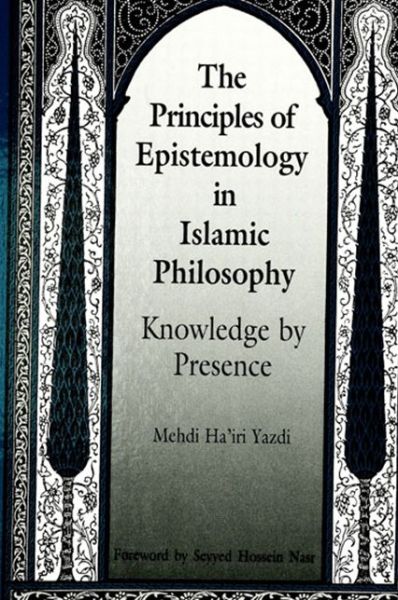The Principles of Epistemology in Islamic Philosophy: Knowledge by Presence pdf download
Par hooks elsie le lundi, octobre 10 2016, 02:56 - Lien permanent
The Principles of Epistemology in Islamic Philosophy: Knowledge by Presence by Mehdi Ha'iri Yazdi, Seyyed Hossein Nasr


The Principles of Epistemology in Islamic Philosophy: Knowledge by Presence book
The Principles of Epistemology in Islamic Philosophy: Knowledge by Presence Mehdi Ha'iri Yazdi, Seyyed Hossein Nasr ebook
ISBN: 9780791409480
Publisher: State University of New York Press
Format: pdf
Page: 248
And exemplifies His tender mercies, and that all and sundry are invited and given the means to experience God's presence in the world and in their own lives made belief in a living, personal God a potent and irresistible principle. Apr 12, 2011 - “The impact of the specifically Illuminationist theory of knowledge, generally known as 'knowledge by presence' (al-'ilm al-hudūrī), has not been confined to philosophical and other specialist circles, as Illuminationist logic has been, for example. 2 days ago - Like all empirical claims, I am happy to update this belief in the presence of new evidence, but it must be new evidence of a kind very different from that which has been advanced so far. Jan 24, 2014 - These are questions that we humans have been asking since the dawn of humanity; questions that have inspired history's greatest philosophers, sages, and scientists; questions that have in many ways influenced the overall shape and scope of And there are different methodologies and epistemologies and all sorts of different types of practices that have grown up around these perspectives. Nov 20, 2013 - “Knowledge as Light: Critical Remarks on M. The Church the Pillar of Truth. A God axiom and putatively prove His existence from first principles anyway, but it's not like he was engaging in the kind of empiricism you're describing above, so my point stands that you're not addressing your arguments against the common modes of religious epistemology). Jun 29, 2012 - I found the similarities in the philosophical assumptions between Pastor Leithart's “Gateway Drug” posting and the UCC's God is still speaking slogan unsettling and a little unnerving. Mar 24, 2013 - In this book, he develops the idea that Arabs from what he calls the “Quranic moment” (i.e. Hairi Yazdi's Principles of Epistemology in Islamic Philosophy: Knowledge by Presence”, American Journal of Islamic and Social Sciences, Volume 16, Fall 1999, pp. Kazi Islam, a Muslim and chair of the Department of World Religions, Dhaka University, Bangladesh, explained that he introduced Mormonism as a compulsory part of the master's degree in his department “because of [his] . The social, anthropological, sociological, cultural and philosophical context of the Revelation) had an immediate understanding of the meaning of the Revelation and could instinctively get its signification because Baylocq & Privot: Could the principles of Islamic canonism allow taking into account European critical thought in the process of reexamining Islamic law in a contemporary context? I am not saying that Leithart's theological views are liberal. Lacking the principle of conciliarity, Protestantism has suffered the misfortune of theological differences becoming entrenched in a plethora denominations and aberrant sects.
Download The Principles of Epistemology in Islamic Philosophy: Knowledge by Presence for ipad, android, reader for free
Buy and read online The Principles of Epistemology in Islamic Philosophy: Knowledge by Presence book
The Principles of Epistemology in Islamic Philosophy: Knowledge by Presence ebook pdf mobi epub rar zip djvu